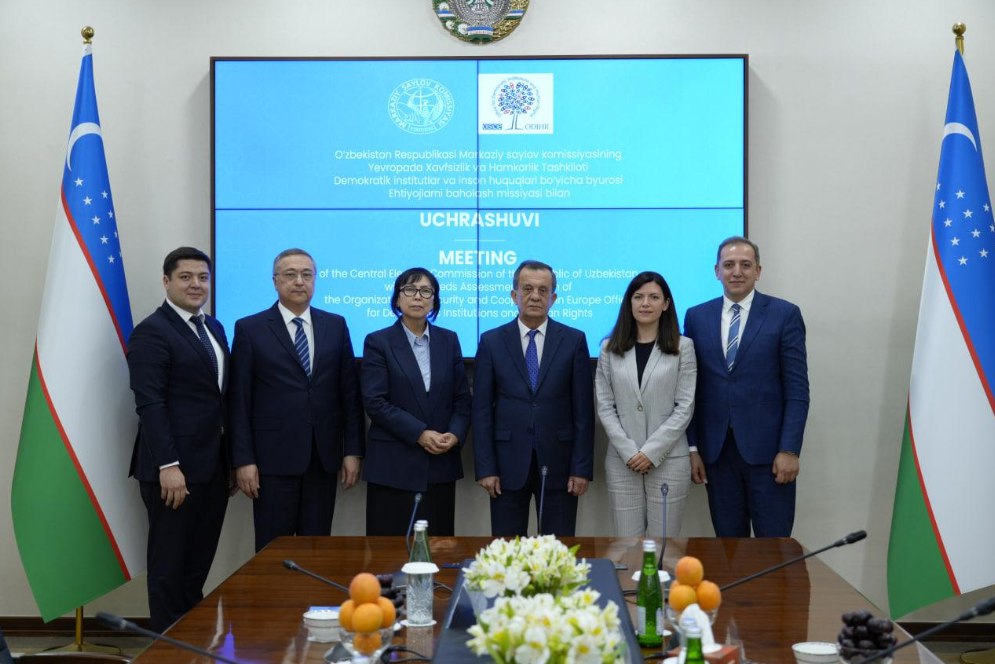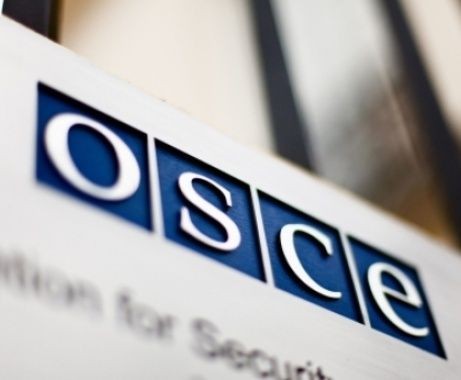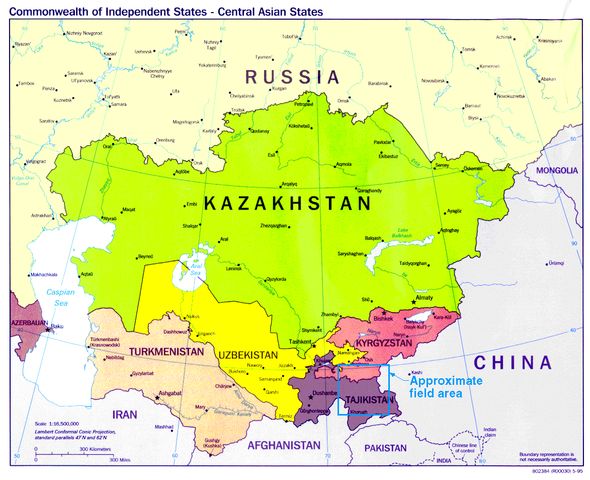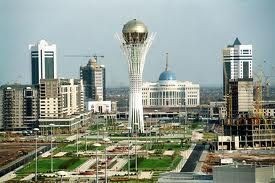Viewing results 1 - 6 of 17
Uzbekistan's central election committee is reporting that discussions have begun on whether the country needs this year's parliamentary elections to be assessed by the Office for Democratic Institutions and Human Rights (ODIHR). The ODIHR is a body of the Organization for Security and Cooperation in Europe (OSCE). Representatives of the OSCE's election department, Keara Castaldo and Kakha Inaishvili, recently held talks in Tashkent with the chair of Uzbekistan's election committee, Zainiddin Nizamkhodjaev. During their visit to Uzbekistan Castaldo and Inaishvili will also meet with representatives of various ministries and agencies, political parties, media, and civil society bodies.
BISHKEK (TCA) — Effective oversight may be the most important long-term contribution that parliamentarians can make to democracy and good governance in their country, the OSCE Parliamentary Assembly President George Tsereteli said in a keynote speech to the participants of the international seminar on strengthening parliamentary oversight in Kyrgyzstan on September 27. Continue reading
DUSHANBE (TCA) — Officials from the Organization for Security and Cooperation in Europe (OSCE), the Government of Tajikistan and civil society representatives met last week to discuss their joint activities for 2020, the OSCE Programme Office in Dushanbe said on August 28. Continue reading
BISHKEK (TCA) — Experiences and best practices of co-operation among regional organizations, particularly how to develop and strengthen synergies between the work and activities of the OSCE, the Shanghai Co-operation Organization (SCO) and the European Union (EU) in Central Asia, were the focus of a meeting in Vienna on July 10 of the OSCE Forum for Security Co-operation, under the Chairmanship of Tajikistan, the OSCE reported. Continue reading
NUR-SULTAN (TCA) — Within the participation in the Meeting of Ministers of Foreign Affairs of the Organization for Security and Cooperation in Europe (OSCE), held on July 8-9 in Slovakia, Kazakh Foreign Minister Beibut Atamkulov held talks with OSCE Chairperson-in-Office, Minister of Foreign and European Affairs of Slovakia Miroslav Lajčák, the Kazakh Foreign Ministry reported. Continue reading
TASHKENT (TCA) — Kicking off his tour of three Central Asian countries at its very heart, the OSCE Chairperson-in-Office and Slovakia’s Foreign and European Affairs Minister, Miroslav Lajčák, on May 20 opened the new OSCE premises in Uzbekistan. Continue reading






